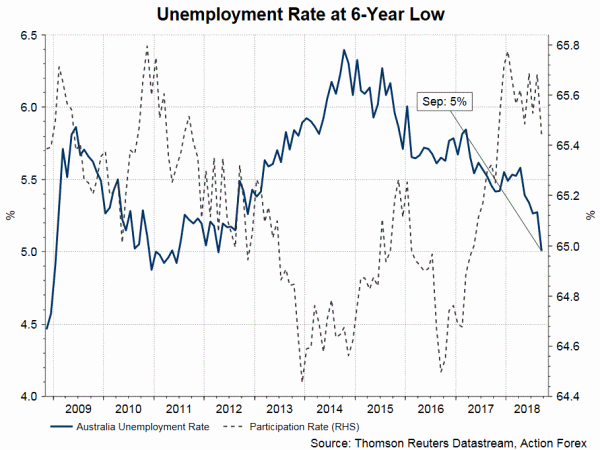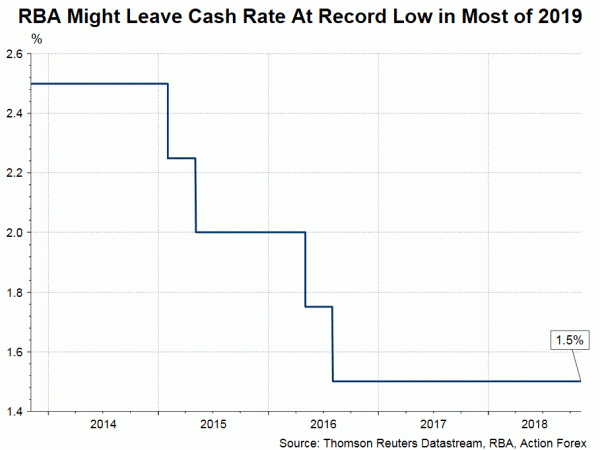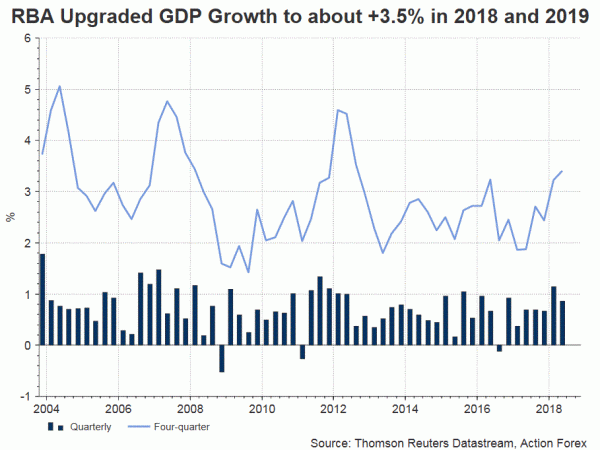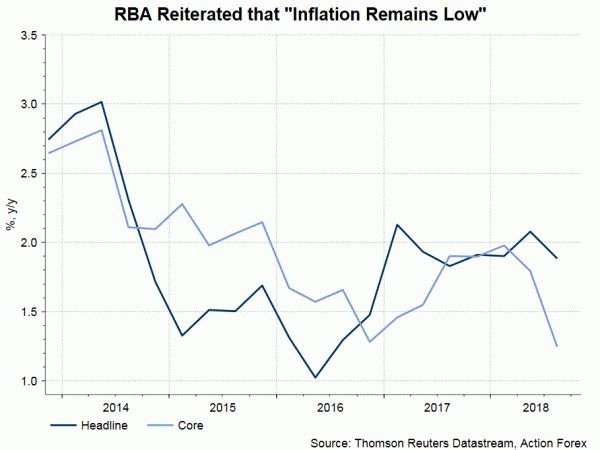The RBA meeting this month is a non-event. As widely anticipated, the members left the cash rate unchanged at 1.5%, for the 25th consecutive meeting. The members remained upbeat over the economic outlook, expecting the job market to strengthen further and wage growth to improve. The central bank left its assessment in the housing market unchanged, while acknowledging tighter credit conditions. However, sluggish inflation might lead the RBA to keep its powder dry for most of 2019.
Policymakers are more upbeat over the domestic economic outlook. At noted in the accompanying statement, they have “revised up a little” GDP growth forecasts for 2018 and 2019 to around 3.5%. Yet, growth would moderate in 2020 “slower export growth or resources”. Growth in household consumption, the biggest component of GDP, remains a “continuing source of uncertainty” as wage growth has remained subdued, together with high debt levels and decline in asset prices.
On the trade outlook, RBA, while affirming high level of trade, forecast the momentum would slow over time.
On the job market, the members retain their “positive” outlook, forecasting unemployment rate to fall to about 4.75% in 2020.
 Admitting that inflation remained “low and stable”, the members projected CPI to reach 2.25% in 2019 and a bit higher in 2020. They judged that a tight employment situation would lead to gradual improvement in wage growth. This, in turn, should help the pickup in inflation in coming years.
Admitting that inflation remained “low and stable”, the members projected CPI to reach 2.25% in 2019 and a bit higher in 2020. They judged that a tight employment situation would lead to gradual improvement in wage growth. This, in turn, should help the pickup in inflation in coming years.
We expect the RBA to leave the policy rate in the near-term. Indeed, the monetary policy stance has stuck by low wage growth, subdued CPI inflation and falling house prices. These would persist the concern on the economic growth outlook.



